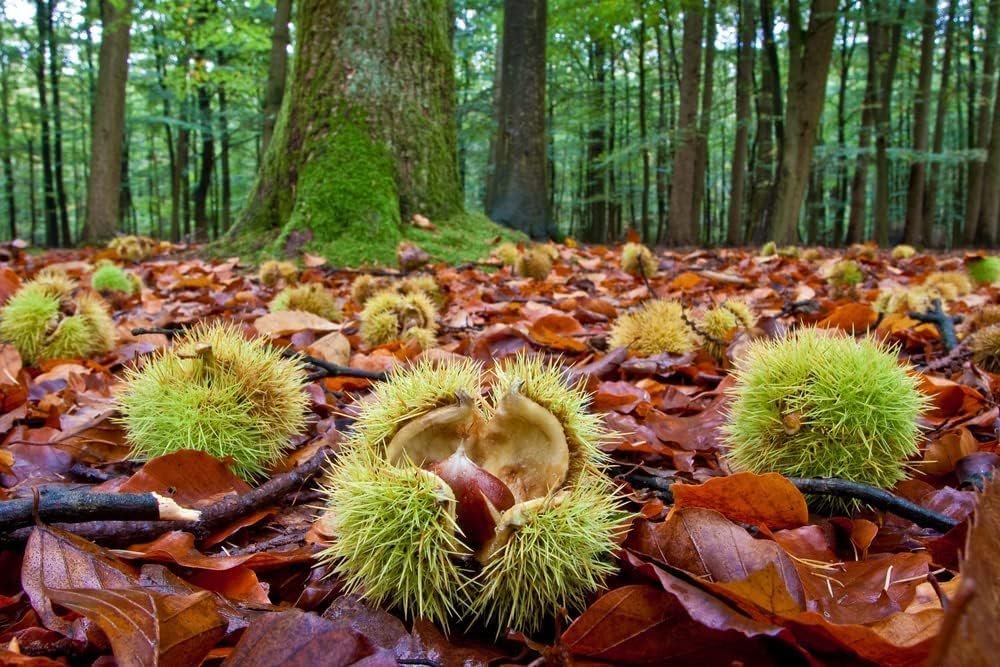Chestnut
Chestnuts roasting on an open fire
Jack Frost nipping at your nose
Yuletide carols being sung by the choir
And folks dressed up like Eskimos
When Nat King Cole recorded "The Christmas Song" in 1946, few listeners could enjoy roasted chestnuts any longer because American chestnut trees were in dire straits. The predominant tree in Eastern American forests was nearing the tail end of a 50-year blight that killed an astonishing three to five billion trees, making the species functionally extinct.
Today, however, researchers supported by USDA’s National Institute of Food and Agriculture (NIFA) are working to restore the American chestnut and may be only a few years away from bringing back the iconic tree.
Chestnut restoration efforts have been ongoing since the 1980s without much success, but researchers recently turned a corner with the creation of an American chestnut variety that is resistant to the blight.
The new transgenic variety of American chestnut is resistant to the Cryphonectria parasitica, the fungus that was introduced to the United States around the turn of the 20th century when Chinese chestnut trees were imported. The fungal pathogen, to which Asian chestnuts are immune, infected American chestnuts with cankers that effectively choked off nutrient delivery to the tree’s branches and upper portions. As a result, America lost both a huge source of food for humans and animals alike and the economic value of its straight, fast-growing, rot-resistant wood.
The blight-resistant variety was created by using a ‘natural genetic engineer’ called Agrobacterium to move a wheat gene into the American chestnut. In the wild, Agrobacterium inserts genes into plants. The wheat gene introduced produces a detoxifying enzyme that prevents the blight-causing fungus from killing the tree's cells and thereby stops canker expansion. The new chestnut has an ability to defend itself against the fungus.
And, because it was developed using the transgenic method, the new American chestnut is more than 99.99 percent identical to the wild variety.

